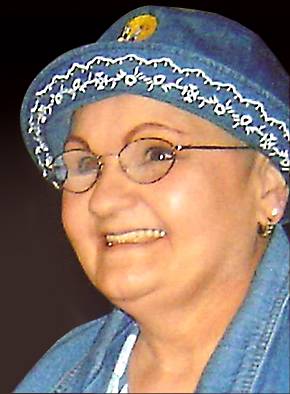
For Marlene Kitsemble of Cowan, Tennessee, hope lies in early access to the drug combination Lapatinib and Capecitabine, recently made available through a study conducted by The Sarah Cannon Research Institute (SCRI) and financially supported by The Foundation.
Having run out of options for effective treatment of her late-stage breast cancer, Marlene eagerly pursued the idea of early access to this drug that could slow down the disease that she has lived with for four years. One call from Kitsemble’s oncologist Adil Mohyuddin, M.D., in Tullahoma, to Denise A. Yardley, M.D., SCRI Program Director, Breast Cancer Research, put Marlene in direct touch with newfound hope.
In spite of bilateral mastectomies and radiation in 2003 followed by four years of various regimens of a variety of chemotherapy drugs, Marlene’s breast cancer has been persistent and aggressive. Options for additional therapy for this aggressive HER2 positive tumor were becoming even fewer, and Marlene’s oncologist suggested she consider participating in a clinical trial that may offer her hope for an increasingly resistant disease. Marlene traveled to Nashville to learn of additional investigational treatment options for her breast cancer. In two short months, Marlene has indeed experienced hope. Just when she felt the door had closed on any additional options, she learned of SCRI’s early drug access study and enrolled as a participant.
This mother of six children, grandmother of seven grandchildren, and great-grandmother to a newborn, has managed her own homecare independent of outside help. An avid reader, Marlene believes in faith and the power of positive thinking and wisely advises, “You have to continue taking care of yourself, no matter what you’re facing, because being good to yourself and having positive thoughts help you cope. My family helps to keep me focused on doing all I can do.
Marlene will continue to receive Lapatinib and remain on the study. Following her first evaluation of the drug combination, Marlene received the encouraging news that she has had a positive response to the treatment. “I have faith and peace of mind that I am being taken care of. This recent news is a blessing to me,” says Marlene.
“Lapatinib with Capecitabine is an extremely effective new treatment for advanced HER2 positive breast cancer and will become a new standard of care for these patients,” says Dr. Yardley. “Based on the promising results experienced by Marlene and many others, FDA approval of Lapatinib is expected soon. Until then, patients can only receive the Lapatinib on clinical trials such as this one, made possible by The Foundation’s support.”
In memory of Marlene Kitsemble, who passed away since this story was published. We are honored to have shared in Marlene’s journey.

